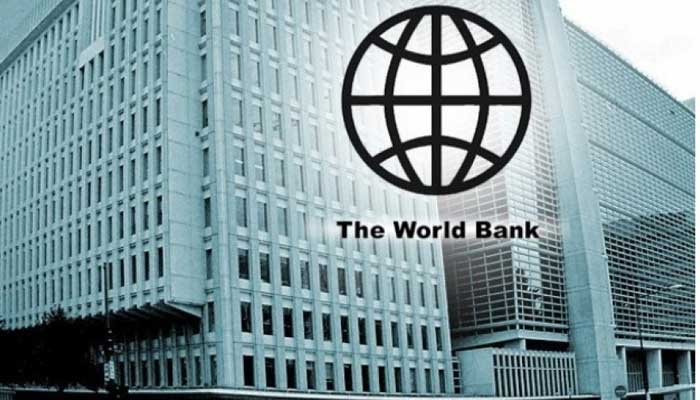World Bank sees Pakistan’s digital finance potential at $36 billion
“To unlock Pakistan’s $36 billion digital finance potential, it will take high-level commitment, faster payments gateway, lower costs, fast track licencing for fintech (financial technology) sector and digitisation of all government payments,” World Bank Country Director for Pakistan Illango Patchamuthu said in a tweet.
KARACHI: The World Bank is bullish on Pakistan’s cashless economy potential, estimating it at significant $36 billion and projecting a straight seven percent boost to GDP with a real-time retail payments gateway, but all, it says depends on a widespread use of online financial transactions.
“To unlock Pakistan’s $36 billion digital finance potential, it will take high-level commitment, faster payments gateway, lower costs, fast track licencing for fintech (financial technology) sector and digitisation of all government payments,” World Bank Country Director for Pakistan Illango Patchamuthu said in a tweet.
Widespread use of digital payments in Pakistan offers a 7 percent boost of GDP, can create 4 million jobs, mobilise over $250 billion in deposits and formalise large parts of the cash economy,” Patchamuthu added.
Pakistan, despite having the fastest-growing internet-savvy populations, has an insignificant use of online payments. Lack of literacy and heavy reliance on cash are hindering growth of digital payments although access to internet-connected devices is increasing significantly.
Patchamuthu sees half of the population of 213 million shifting to digital payments within a year and the country outperforming regional economies, like India and Indonesia if the government introduces a real-time payments gateway.
“A real time retail payments gateway and a booming fintech sector can accelerate the use of digital payments in Pakistan to at least 50 percent of the population by 2020,” he said. Only 18 percent of population uses digital payments in Pakistan now. A Pakistani will make only one digital transaction per year compared to 5 in India, 7 in Indonesia. Pakistan can accelerate digital payments and leapfrog its peers.” While private sector’s businesses, known as fintech, are introducing mobile wallets and local gateways, the local platforms are not capable to remit foreign currency from across the border, impeding the goal of cashless economy.
Ecommerce market size grew around 94 percent year-on-year to more than Rs40 billion last year but the 90 percent of payment transactions were through cash-on-delivery. The ministry of commerce called for a need of enabling card-not-present transactions and to explore the possibility of cobadging with international card payment schemes. “International payment gateways like Visa and Mastercard exist in Pakistan that facilitates the merchants for e-commerce transactions, both national as well as international,” the ministry said in the ecommerce policy framework. International payment gateways for routing payments would “require bilateral agreements with countries individually to route remittances to Pakistan,” it added.
The government, last week, approved the maiden framework to unlock the ecommerce potential through removing regulatory snags.
“MOITT (ministry of information technology) in collaboration with SBP (State Bank of Pakistan), will approach PayPal and other payment gateways to ensure availability of international payment gateways in Pakistan,” the ministry said in the document. The central bank planned to introduce faster payment gateway next year, saying “government payments and receipts and merchant payments to be the key elements in accelerating digitisation of payments in the country”.
-
 Andrew Mountbatten Windsor Blunders Are Result Of 'conspiracy Of Silence'
Andrew Mountbatten Windsor Blunders Are Result Of 'conspiracy Of Silence' -
 Keith Urban Fires Entire Management Team After Divorcing Nicole Kidman
Keith Urban Fires Entire Management Team After Divorcing Nicole Kidman -
 Kylie Jenner Marks Death Anniversary Of Hairstylist Jesus Guerrero With '222' Tribute
Kylie Jenner Marks Death Anniversary Of Hairstylist Jesus Guerrero With '222' Tribute -
 Daniel Radcliffe On How It's Like Seeing New Harry Potter Cast Years Later
Daniel Radcliffe On How It's Like Seeing New Harry Potter Cast Years Later -
 Andrew Portrait Makes Unexpected Debut At Louvre Museum Over Epstein Protest
Andrew Portrait Makes Unexpected Debut At Louvre Museum Over Epstein Protest -
 Italy: Skeleton Of Saint Francis Of Assisi’s Goes On Public Display For First Time After 800 Years
Italy: Skeleton Of Saint Francis Of Assisi’s Goes On Public Display For First Time After 800 Years -
 Hailey Bieber's Subtle Gesture For Eric Dane’s Family Revealed
Hailey Bieber's Subtle Gesture For Eric Dane’s Family Revealed -
 Moment Prince William 'broke Down' And 'apologised' To Kate Middleton
Moment Prince William 'broke Down' And 'apologised' To Kate Middleton -
 Paul Mescal And Gracie Abrams Stun Fans, Making Their Romance Public At 2026 BAFTA
Paul Mescal And Gracie Abrams Stun Fans, Making Their Romance Public At 2026 BAFTA -
 EU Rejects Any Rise In US Tariffs After Court Ruling, Says ‘a Deal Is A Deal’
EU Rejects Any Rise In US Tariffs After Court Ruling, Says ‘a Deal Is A Deal’ -
 King Charles Congratulates Team GB Over Winter Olympics Success
King Charles Congratulates Team GB Over Winter Olympics Success -
 Meryl Streep Comeback In 'Mamma Mia 3' On The Cards? Studio Head Shares Promising Update
Meryl Streep Comeback In 'Mamma Mia 3' On The Cards? Studio Head Shares Promising Update -
 Woman Allegedly Used ChatGPT To Plan Murders Of Two Men, Police Say
Woman Allegedly Used ChatGPT To Plan Murders Of Two Men, Police Say -
 James Van Der Beek's Widow Mourns Eric Dane Days After Husband's Death
James Van Der Beek's Widow Mourns Eric Dane Days After Husband's Death -
 UK Seeks ‘best Possible Deal’ With US As Tariff Threat Looms
UK Seeks ‘best Possible Deal’ With US As Tariff Threat Looms -
 Andrew Arrest Fallout: Princess Beatrice, Eugenie Face Demands Over Dropping Royal Titles
Andrew Arrest Fallout: Princess Beatrice, Eugenie Face Demands Over Dropping Royal Titles




